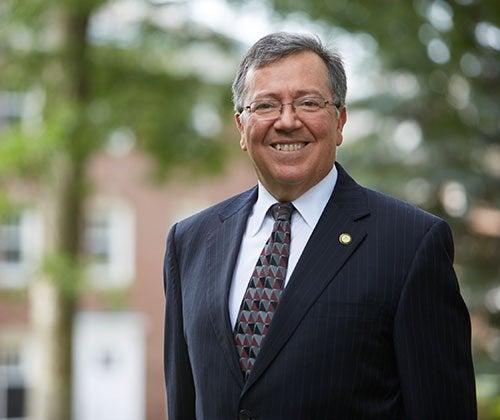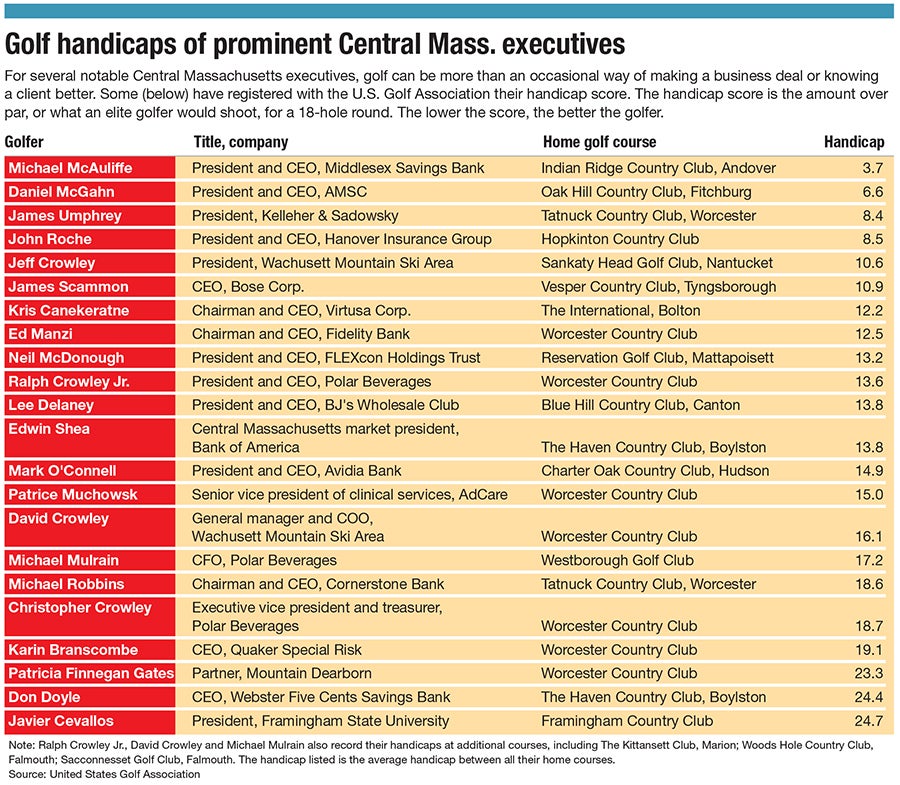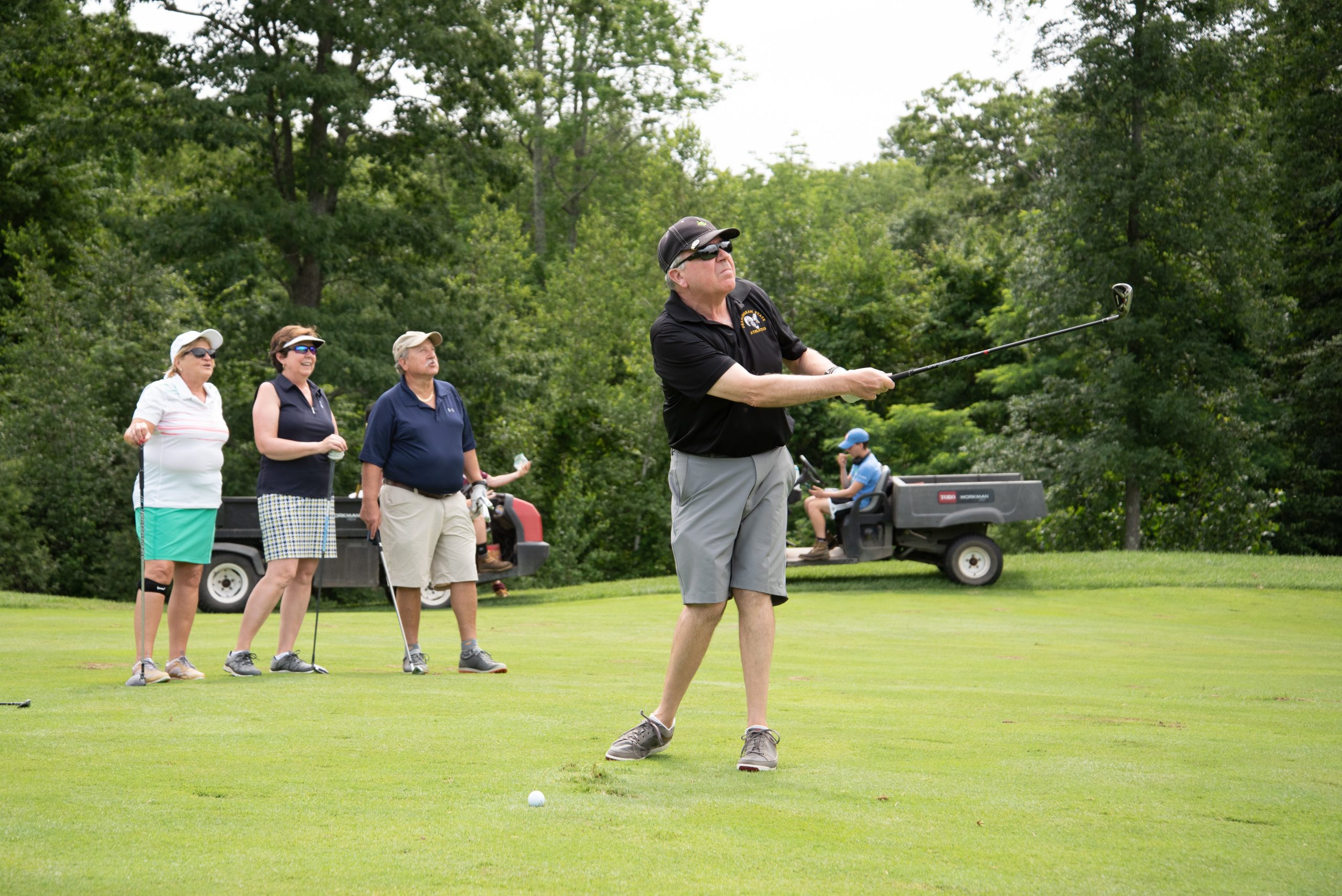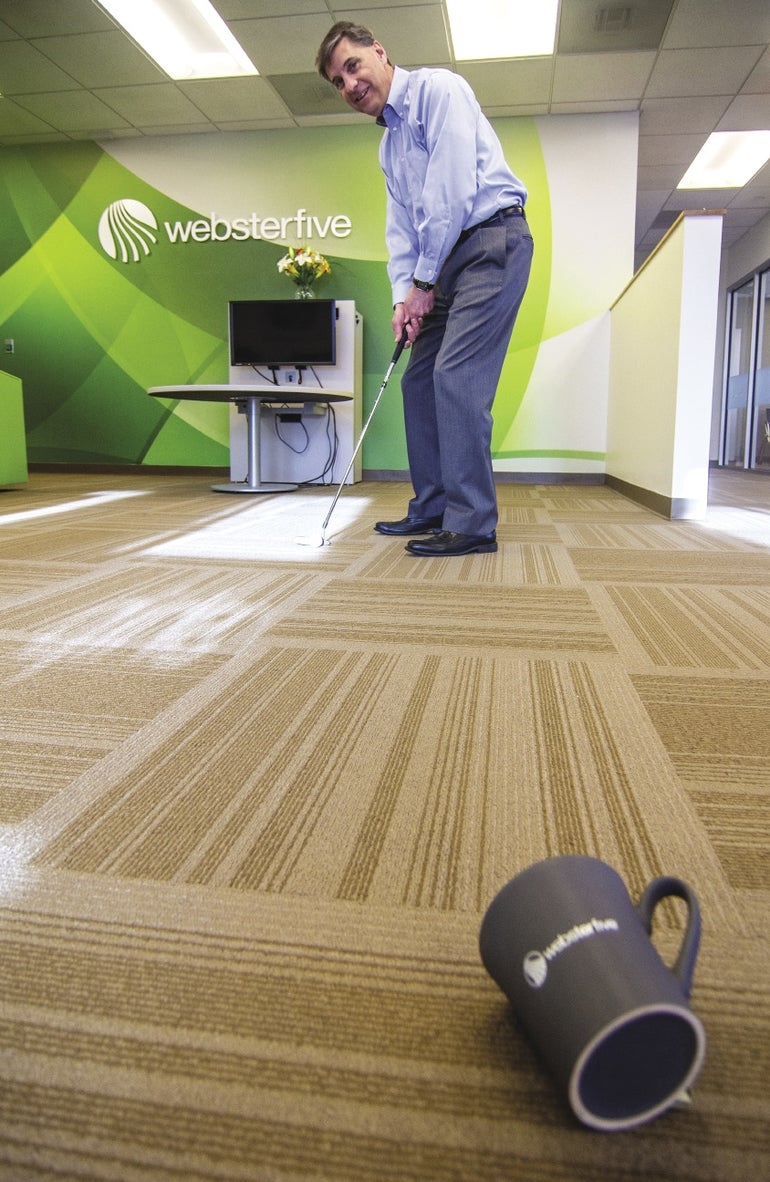Many Central Massachusetts executives see golf as not only a way to make or keep connections in the business world, but also as a passion.
Get Instant Access to This Article
Subscribe to Worcester Business Journal and get immediate access to all of our subscriber-only content and much more.
- Critical Central Massachusetts business news updated daily.
- Immediate access to all subscriber-only content on our website.
- Bi-weekly print or digital editions of our award-winning publication.
- Special bonus issues like the WBJ Book of Lists.
- Exclusive ticket prize draws for our in-person events.
Click here to purchase a paywall bypass link for this article.
Javier Cevallos, the president of Framingham State University since 2015, was not a golfer growing up.
Cevallos, who was born in Ecuador and raised in Puerto Rico, took up the game only once he became a college administrator while in his 40s.
He thought he needed to know the game in order to connect with donors and companies with which his college partnered. But golf grew on Cevallos, who was the president of Kutztown University in Pennsylvania before joining Framingham State.
“I love to play,” he said. “I enjoy the game.”

Cevallos joined a sport long linked to the business world, a chance to get leisure exercise while talking shop or building relationships.
“You’re going to spend a few hours with each other on the golf course without distractions,” said Troy Sprister, the general manager of the Worcester Country Club.
That contrasts with maybe 45 minutes together at lunch, where distractions could be harder to fend off, Sprister said.
Loving the game
Cevallos isn’t alone among Central Massachusetts executives who see golf as not only a way to make or keep connections in the business world, but also as a passion. Many even register with the United States Golf Association their handicap, a number indicating their average score over 18-holes.
Mark O’Connell, the president and CEO of Avidia Bank in Hudson, has a 14.9 handicap — about average for committed golfers but far better than duffers who might rarely make it out on the course. For golfers who register their scores with USGA, more than half of men have a handicap of 14 or better, and for women it’s 25.
O’Connell started playing as a kid but hit the links more often once he worked up the ranks in banking. Today he plays 70 to 75 rounds a year and is a member of the Charter Oak Country Club in Hudson.
“From a business perspective, it’s very useful,” O’Connell said of playing partly as a way to get out with customers or potential ones. It’s a more leisurely pursuit than, say, trying to bond over a game of pick-up basketball, he said.
Another golfing executive, Webster Five Cents Savings Bank CEO Don Doyle, played par-3 courses – shorter courses easier for beginners – growing up, got away from it while having a young family and then jumped back into the game once he became a banking executive.
“It’s five or six hours that you’re spending with two or three other people,” Doyle said. “It’s a great way to solidify or develop a relationship.”
In some cases, the love of the game turns into a bucket-list endeavor.

O’Connell has played some of the country’s most famous courses, including Pebble Beach and Torrey Pines in California, Pinehurst Resort in North Carolina, and Bandon Dunes in Oregon. O’Connell and friends take a golf trip each year in a quest to play each of the country’s 10 highest-rated public courses.
Cevallos, whose handicap is 24.7, has played one of the world’s best-known courses, too: Augusta National Golf Club in Georgia, home of the annual Masters tournament.
Golf’s role in business
A 2016 study in Harvard Business Review found an average S&P 1,500 CEO played 16 rounds a year, with some logging upwards of 100, almost once every three days.
The article questioned a tangible connection between a leader’s prolific golf habit and company performance.
Some executives may golf with a valid business reason, the study's three authors, all business profesors, said.
“But we figure that a CEO who plays a high number of rounds each year is probably doing so because they enjoy it.”
A Syracuse University study in 2016 reported 93% said playing golf with a business associate is a good way to establish a closer relationship.
But the same three professors in the Harvard Business Review report — Lee Biggerstaff, David Cicero, Andy Puckett — said in a study in the journal Management Science they found evidence some executives shirk their responsibilities by playing golf simply for leisure.
Whether golf will continue to be a preferred way for business leaders to meet is uncertain.
National Golf Foundation data shows more people taking up the sport for the first time, but fewer people played at least once in the past year, with participation peaking in 2001, according to The Wall Street Journal.
Nicholas Barnes, an associate professor of business and law at Nichols College in Dudley, which has its own nine-hole golf course, sees golf as sitting between two trends: top firms looking to be more inclusive, which can mean moving away from golf, and a time crunch often limiting how much someone can spend out on the course.
For larger companies, it might mean taking a client out to a Boston Red Sox or Celtics game, for example, which still offers plenty of opportunities to chat. Minor-league teams are also savvier at marketing themselves to business clients than they used to be, Barnes said.
Barnes said as business leadership has slowly diversified in gender and ethnicity, executives are seeking out non-sports events and venues for networking and business development with clients.
“I do see the next generation as more diverse and less interested in golf,” Barnes said.

Even as a late arrival to the game, Cevallos sees the game as having slightly less of a role in the business world than when he picked up the sport.
“It’s not as intense as it used to be,” he said. “There are other ways to connect to people nowadays.”
Doyle, whose handicap is 24.4, mentions an old adage – a bad day of golf still beats a good day in the office – but knows it’s sometimes harder for everyone to find the time.
But Sprister is confident the sport will carry on, saying he’s seen an uptick locally despite the drop nationally.
“Absolutely,” he said. Teaching kids the sport, he said, he advises them golf is something they can play the rest of their lives and potentially lend a hand at work, too.
“Golf will help in your career,” Sprister said. “I really believe that.”
CORRECTION: A previous version of the golfers' handicaps chart incorrectly included Doug Brown, chief administrative officer of UMass Memorial Health Care in Worcester. The Doug Brown included on the incorrect chart as having his home course at Hopkinton Country Club is a different person than the UMass executive. The chart has been updated.

